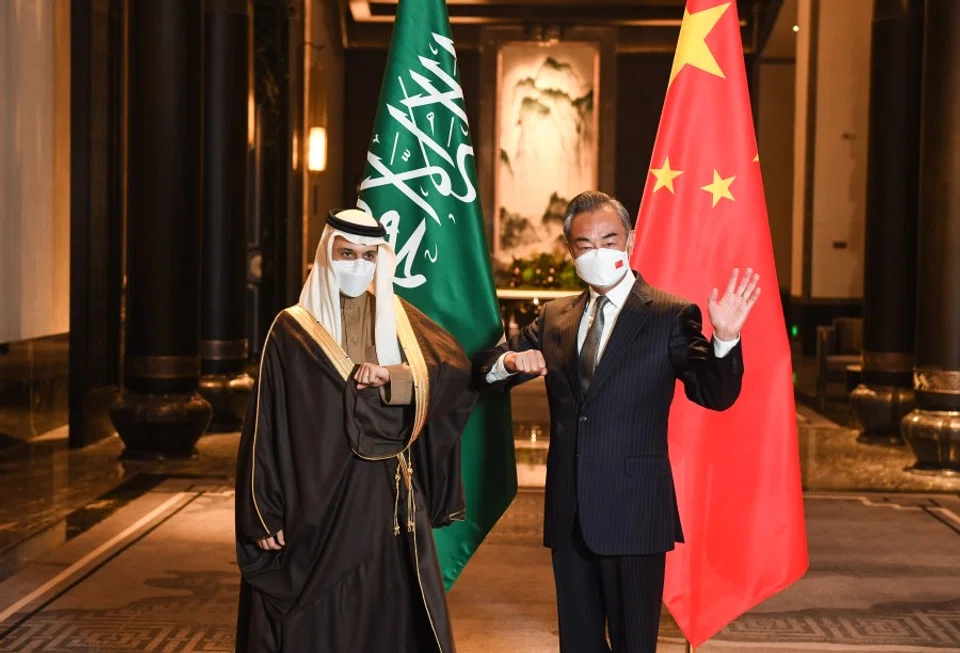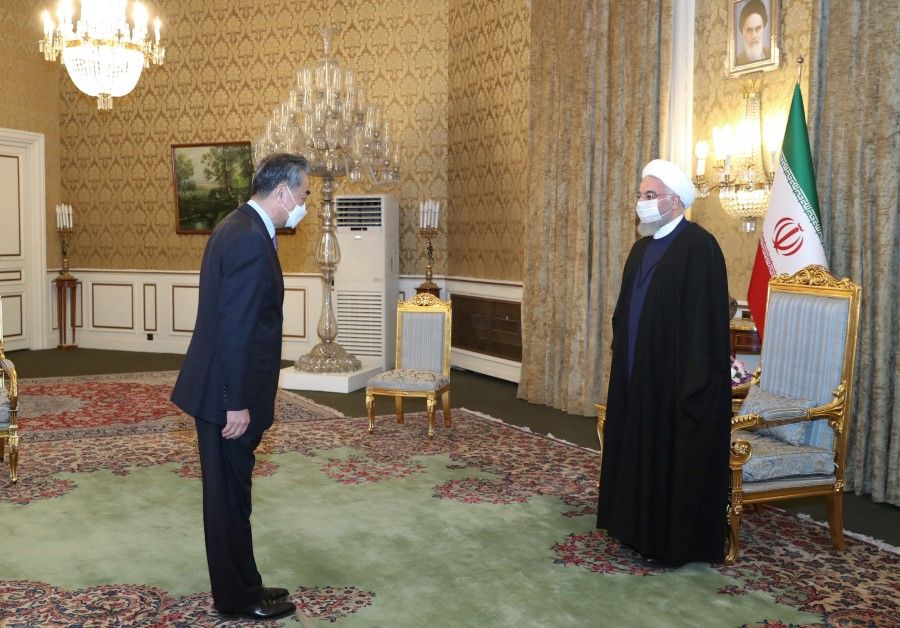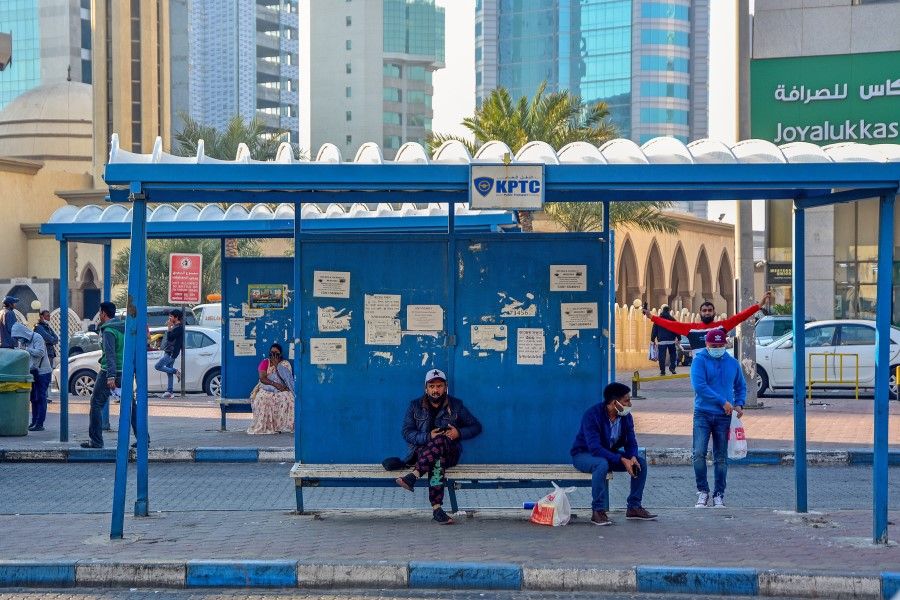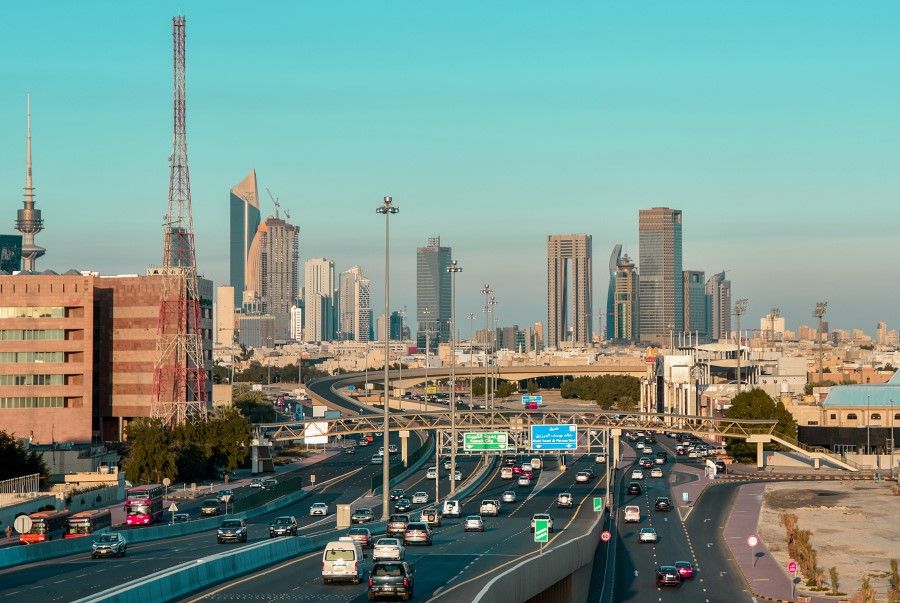Chinese academic: Beijing does not want China to replace the US in the Middle East

At the start of this year, one of the highlights in China's diplomacy was its foreign minister visiting Africa. The other was a series of official visits made by the foreign ministers of countries in the Middle East region such as Saudi Arabia, Kuwait, Oman, Bahrain, Turkey and Iran etc., as well as by the secretary-general of the Gulf Cooperation Council (GCC) to China between 10 and 14 January. In the same period, the Chinese foreign minister also held a phone dialogue with his United Arab Emirates (UAE) counterpart.
As a Chinese academic engaged in long term research on Middle Eastern affairs, I am naturally delighted with the Middle Eastern focus of Chinese diplomacy at the start of 2022. Generally, researchers would wish for their countries to pay attention to their areas of research.
China's strong links to stakeholders in Middle East
Over the years, the overriding global impression of the Middle East is the many conflicts amongst the countries there, especially between countries with different ethnic majorities. To a very large extent, the official visits by the foreign ministers of the region from the Arab countries to Turkey and Iran points to a feature of China's Middle Eastern diplomacy - it has a direct line to all the stakeholders there.

A point working in favour of deepening ties between China and the Middle East is the absence of historical baggage. Besides, the core interest of almost all the countries involved lies in economic cooperation, so the likelihood of political conflicts is also smaller. Together with China's Belt and Road Initiative, the pressing needs of countries in the Middle East region for economic development mean that bilateral ties have been on an upward trajectory in recent years.
However, there is still a need to be level-headed and recognise that even though certain countries in the Middle East region and China greatly desire to enhance bilateral ties that have been developing steadily, this round of closely scheduled visits to China by a number of foreign ministers from the Middle East does not mean that a concrete change in the relationship between China and the region has occurred.
In the joint statement issued by the Chinese foreign ministry and secretariat of the GCC on 11 January, the four points of consensus reached by both sides basically expressed their hope for a better future. The term repeated in the first three points of consensus is "as soon as possible", while "at an appropriate time" was used in the last. The usage of these ambiguous terms points either to the hastiness of the meeting, or that there are still some outstanding issues between both sides.
Security issues top of the agenda
The official visits by the foreign ministers of Turkey, Iran and four member nations of the GCC this time round was also an opportunity to discuss Middle East security.
In briefings conducted by the Chinese foreign ministry on the respective meetings between Foreign Minister Wang Yi and his counterparts from Saudi Arabia, Bahrain, Kuwait, Oman and the UAE, as well as the GCC secretary-general, the Iranian nuclear issue was a common topic. Currently, talks regarding an Iran nuclear deal are well underway in Vienna. When the Iranian foreign minister visited Qatar recently, he made it clear that Iran will provide timely updates on the progress of the nuclear talks to its friends in the region.

In March 2021, when Wang Yi outlined China's initiative to achieve security and stability in the Middle East, he emphasised China's proposal to host a multilateral dialogue on regional security in the Persian Gulf. Wang Yi also said that China is looking into setting up a Middle East trust mechanism, and building step by step a framework for collective, comprehensive, cooperative and sustainable security in the Middle East.
On the one hand, Arab countries in the Persian Gulf are very concerned about the development of Iran's nuclear programme. On the other hand, Turkey has been paying much attention to and has even intervened forcefully in the affairs of Middle Eastern countries such as Syria, Iraq and Libya over the years. Therefore, any discussion on regional security would clearly require the participation of the Arab countries, Turkey and Iran.
In all honesty, while it is a fact that China and countries in the region enjoy closer ties, China is still far behind the US in terms of its regional influence.
Other key players absent
Even then, it is insufficient. Qatar, a GCC member, was not part of the recent flurry of diplomatic activity between countries in the Middle East region and China. Similarly, Israel, which is critical to security in the region, was absent. Since one of the highlights of this round of visits was the interaction between China and the GCC, it is regrettable that Qatar was not involved given the recent blockade imposed on it by other members of the GCC. If the recent round of diplomatic efforts did include discussions on Middle East security issues, Israel's absence is also problematic.
This round of official visits was indeed an opportunity for China, the various countries in the Middle East region, and the GCC to deepen bilateral ties. But to a larger extent, it is a natural progression in the development of bilateral ties in recent years and there is no reason to read too much into it.

As China stepped up its Middle East diplomacy in recent years, the world is paying more attention to its role in the region. Comments like "China is aiming to replace the US in the Middle East" are frequently seen. In all honesty, while it is a fact that China and countries in the region enjoy closer ties, China is still far behind the US in terms of its regional influence. At the same time, countries in the Middle East region are also more attracted to the US and European powerhouses than China.
No basis to China overtaking the US in the Middle East
More crucially, the so-called withdrawal of the US from the Middle East is a false premise, and Russia and the European giants also hold sway over the region. What is more, the decision makers in Beijing do not wish for China to replace the US in the Middle East. China's relationship with the Middle East and the development of its diplomacy do not validate the assumption that it is trying to become a leader in the Middle East.
Despite all these, there is no denying that the visuals and sentiments from this round of visits are rather impactful, which is why the world is paying extra attention. So how should one interpret the intensiveness of this round of visits?
First, it is a natural and necessary next step in the cordial relations between both sides. Other than looking into certain concrete issues to promote the development of bilateral ties, the proximity of the visits is also a show of diplomatic support for China. And this is what China needs at the moment.
...there is really no need to read too much into this diplomatic exchange between China and the Middle East at the start of this year.

Second, many countries in the Middle East face various development difficulties. This means that they urgently need to cultivate closer links with economic titans and China is an obvious choice. Therefore, these visits to China in pursuit of closer cooperation are born out of internal needs.
Third, China's handling of the Covid-19 pandemic. Due to China's Covid-19 policies, such official visits cannot be held in Beijing, and since the pandemic began, the Chinese foreign minister has had to handle more diplomatic engagements. In view of this, it is understandable for China to schedule these visits at the same location and during the same period.
The truth is this is not the first time that China has engaged multiple Middle Eastern counterparts at the beginning of a year. In early 2016, President Xi Jinping visited Saudi Arabia, Egypt and Iran on his first overseas trip (of the year). Therefore, there is really no need to read too much into this diplomatic exchange between China and the Middle East at the start of this year.
Related: Chinese academic: Can China challenge the US's standing in the Middle East? | Chinese academic: China-Iran deal will benefit China, Iran and Middle Eastern countries in the long run | How terrorism against China in the Middle East could develop | Shifting alliances in the Middle East: Countering the China threat with an Indian Ocean triangle
